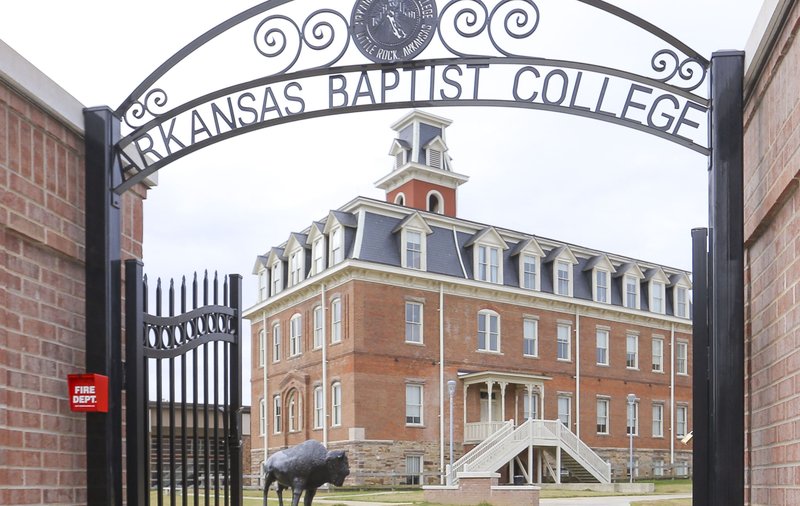After a 10-day delay, Arkansas Baptist College has paid faculty and staff members by answering federal officials' questions and then receiving money that had been withheld, the college announced Friday in a news release.
The private, historically black college in Little Rock had been unable to pay employees because the U.S. Department of Treasury "delayed" the college's federal funds, the school's interim president, Howard Gibson, said last week. Arkansas Baptist relies heavily on U.S. Department of Education money to make ends meet.
An explanation for the temporary funding freeze, or the amount involved, has been difficult to pin down because college and government officials for two weeks have declined to answer questions.
An internal report from last summer and annual audits, however, have found several problems with how the college handled Education Department money over the years.
Arkansas Baptist in fiscal 2016 employed 290 people, according to its latest tax filing, though the chairman of school's board of trustees said that number is lower now.
"We are happy to announce that all faculty and staff have been paid," Gibson said in a two-sentence statement. "We regret any inconvenience this delayed transaction has caused our employees."
Arkansas Baptist received the money after responding to Education Department questions, according to the news release, which didn't say what questions were answered nor how much money the college received.
The department's press office -- which last week referred questions to Treasury officials, who have not responded to multiple inquiries -- did not answer questions Friday.
Gibson previously cited issues with Title III and Title IV Education Department money that predated his administration, which began in December. He has declined to answer specific questions and did not respond to a request for further comment Friday.
Title IV money includes student financial aid reimbursement, such as Pell grants or student loans. Title III funds are federal grants meant to establish or improve academics, facilities and endowments.
Kenneth Harris, chairman of the college's board of trustees, previously said Arkansas Baptist was looking for alternative funding, such as a short-term loan or line of credit, to meet April's payroll obligation.
"I really don't have any details relative to what has transpired," Harris said Friday. "I was informed that our staff -- everybody -- has been paid, and I was happy to hear that."
Some hourly employees received paychecks earlier in the week, said Harris, who added that he was unable to talk about what caused the funding crunch and how it was resolved.
"I don't deal with the day-to-day operations at the institution as a board member," Harris said. "We leave all of that up to the administration to deal with. All I'm aware of is there was a delay in funds ... and the particulars of it, I can't address those."
Gibson assumed leadership of Arkansas Baptist after former President Joseph Jones left the college. Jones was president for 15 months after replacing longtime chief Fitz Hill, who resigned in 2016.
Jones said at the time that he had resigned; Harris has said Jones was fired.
A 60-page internal "operational assessment" of the college last summer by a Georgia-based accounting firm that specializes in higher education found that Arkansas Baptist had misspent $475,000 in Title III money and possibly owed more than $500,000 of Title IV money to the Education Department.
Problems highlighted in The Wesley Peachtree Group's report, obtained by the Arkansas Democrat-Gazette, dated back to fiscal 2014, Jones has said. It's not clear whether these issues prompted the recent funding delay, though Jones has said federal officials "forewarned" that the flow of money would stop if the college did not repay what it owed.
Some of the college's financial troubles have been traced to 2013, when the Education Department placed the college on "Heightened Cash Monitoring 2" status after "severe findings" were noted during an annual audit. In other cases, plunging enrollment has been blamed.
The cash-monitoring designation -- applied to Title IV money -- restricts cash flow in part because sanctioned schools must seek reimbursement rather than receive the money in advance.
Fall enrollment dropped over the span of several years, from a 10-year peak of 1,193 in 2011 to a low of 575 last fall, according to Arkansas Department of Higher Education data.
The Chicago-based Higher Learning Commission in 2015 ordered Arkansas Baptist to show why its accreditation should not be stripped because of its financial insecurity. Although the school maintained its accreditation as part of a November 2016 decision, it is undergoing a follow-up review to see if it is making promised improvements.
A Section on 05/12/2018

